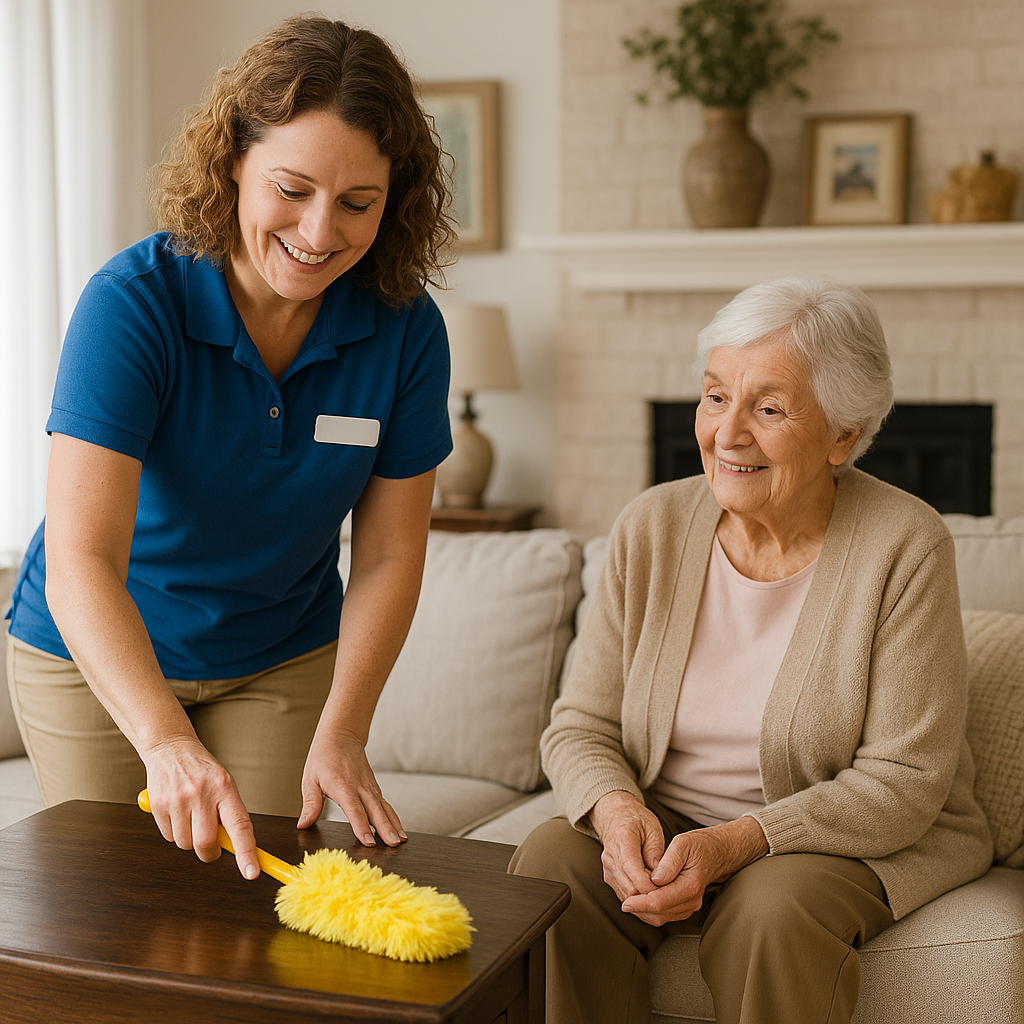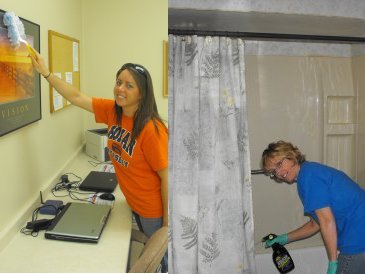St. Marys Location: 610 Indiana Ave. (419) 394-8252 Wapakoneta Location: 108 W Mechanic St (419)738-2438

St. Marys Location: 610 Indiana Ave. (419) 394-8252 Wapakoneta Location: 108 W Mechanic St (419)738-2438

As the aging population continues to grow, the need for comprehensive, compassionate support services for seniors becomes more critical than ever. One of the key components of enabling older adults to maintain their independence and dignity is the provision of Homemaker Services. These services are designed to support seniors who wish to continue living in their own homes while managing the challenges that come with aging.

Homemaker services involve assistance with non-medical daily living activities such as light housekeeping, laundry, bed linen changes, and bathroom cleaning. These services are essential for seniors who may face physical limitations or health issues that prevent them from performing household tasks safely and effectively.
By offering this kind of support, the Council on Aging empowers seniors to live more independently and with a higher quality of life.
Homemaker services are non-medical support tasks provided in the home to assist with daily living activities. These services are tailored to meet the unique needs of elderly individuals and may vary based on their level of ability and health status.
Homemaker services do not include medical care, personal grooming assistance, or heavy-duty cleaning tasks, but they complement such services by creating a safe and clean home environment.
The Council on Aging typically conducts an initial assessment to determine eligibility for homemaker services. This process ensures that resources are allocated to those with the greatest need.
This comprehensive approach ensures a personalized care plan tailored to the individual’s lifestyle and home environment.
A primary benefit of homemaker services is that they help seniors maintain their independence. Tasks that were once simple can become strenuous or hazardous with age. By providing assistance, seniors can avoid institutional care and remain in familiar surroundings.
Clean and organized living conditions reduce the risk of accidents and illness. Regular housekeeping prevents falls, mold buildup, pest infestations, and respiratory problems.
Many seniors are supported by family caregivers who juggle jobs, children, and other responsibilities. Homemaker services offer much-needed respite and support, ensuring consistent care even when caregivers are unavailable.
A tidy, clean home environment can significantly improve a senior’s mood and mental health. It instills a sense of pride, structure, and normalcy, especially for those who may be battling loneliness or depression.
Effective homemaker services require a well-organized support network, trained staff, and consistent follow-up.
Clients and their families are encouraged to provide feedback, request changes, and participate in regular reviews of the service plan.
Real-life stories illustrate the transformative power of homemaker services:
These stories show that small acts of help can have life-changing effects.
As demand grows, the future of homemaker services lies in:
Homemaker services are a vital aspect of senior care. By helping with everyday tasks, they enable older adults to live independently, safely, and with dignity. Auglaize Council on Aging plays a pivotal role in delivering these services, offering a lifeline to seniors who wish to age in place. As the needs of our aging population evolve, so too must our commitment to supporting their independence through programs like homemaker services.
Continued investment, innovation, and compassion will ensure these services remain a cornerstone of community-based senior care.
Need more information? Give us a call at (419) 394-8252 or send us a message. We'll be happy to answer your questions.
Contact Us